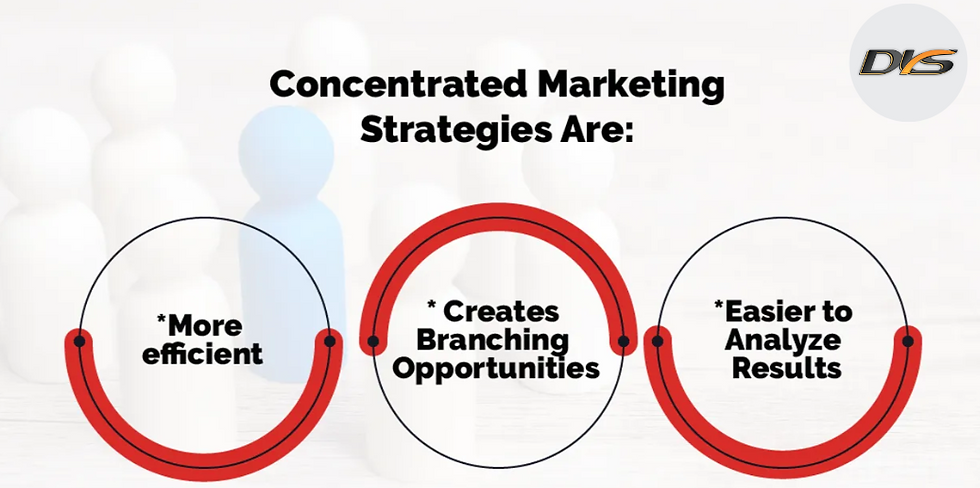The Power of Precision: The Strategic Advantage of Concentrated Targeting in Marketing Campaigns
- DentalLabSupport

- Sep 25, 2023
- 2 min read

In the world of marketing, bigger isn't always better. When it comes to achieving remarkable results and maximizing your campaign's efficiency, a focused approach can often yield superior outcomes. This is particularly true when you concentrate your efforts on a select group of 200 highly targeted prospects every month. Let's explore why this strategy is immensely beneficial to your campaign's success.
1. Personalization at Its Best
When your campaign focuses on a limited number of prospects, you have the opportunity to personalize your messaging and approach to a much higher degree. You can delve deep into the specific needs, pain points, and preferences of each prospect. This level of personalization not only makes your communications more impactful but also demonstrates that you've taken the time to understand their unique requirements.
2. Quality Over Quantity
The age-old adage "quality over quantity" holds true in targeted marketing. Instead of casting a wide net and hoping for a few hits, you can concentrate on a smaller group of prospects who are more likely to convert. These individuals are not just numbers; they are genuine opportunities. Focusing on quality leads to higher conversion rates and, ultimately, a better return on investment (ROI).
3. Efficient Resource Allocation
Your resources are valuable, and allocating them effectively is crucial. When you focus on 200 targeted prospects, you can allocate your time, budget, and manpower more efficiently. You're not spreading your efforts thin across a vast pool of leads. Instead, you're concentrating your resources on the prospects who matter most, ensuring every interaction is meaningful and productive.
4. Deeper Engagement
By narrowing your focus to 200 prospects, you can engage with each one more deeply. You can foster genuine connections, answer questions, and address concerns promptly. This level of engagement not only increases your chances of conversion but also builds trust and credibility, which are essential in any business relationship.
5. Better Data Collection and Analysis
In a smaller pool of prospects, it becomes easier to collect and analyze data. You can track interactions, responses, and conversions with greater precision. This data-driven approach allows you to refine your strategies continuously, making each subsequent campaign more effective than the last.
6. Reduced Risk of Overwhelm
Managing a massive prospect list can be overwhelming, leading to burnout and decreased campaign effectiveness. Focusing on 200 prospects provides a manageable workload for your team, allowing them to maintain their energy, creativity, and enthusiasm throughout the campaign.
7. Nurturing Long-Term Relationships
A smaller, highly targeted group of prospects lends itself well to relationship building. You can invest more time and effort in nurturing these relationships, which often leads to long-term partnerships and recurring business. These clients are not just one-time transactions but valuable assets to your brand.
Focusing on only 200 highly targeted prospects every month is a strategic approach that can yield significant benefits for your campaign. It allows for unparalleled personalization, ensures quality interactions, optimizes resource allocation, and fosters deeper engagement. Additionally, it facilitates effective data collection, reduces the risk of overwhelm, and paves the way for long-term, fruitful relationships. So, when it comes to campaign success, remember that sometimes, less truly is more.



Comments